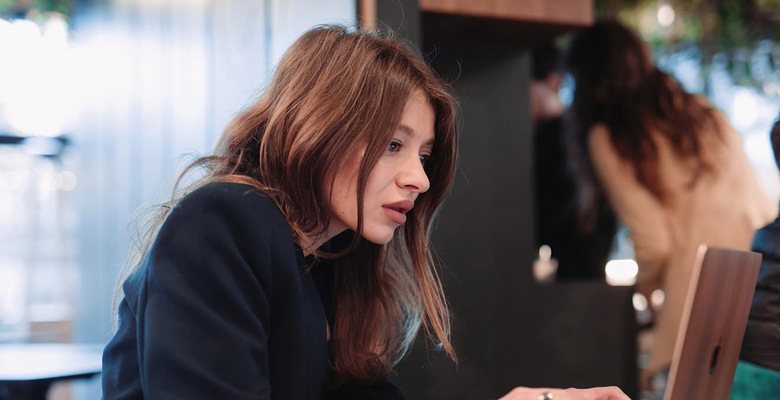
In this feature, we continue to relate the experiences of Russian-speaking emigrants and tell the real-life stories of people moving to Britain. Today's subject lived and studied in Poland before finding work at Google and moving to London. A few years later, however, she decided work at the global corporation had lost its attraction, so she left to open her own business. To make this succeed, she had to severely tighten her belt and change her lifestyle, but she is confident this move will be a sound investment in her future comfort.
Anastazja Debowska, 30, originally from Grodno in Belarus, took advantage of a job offer from Google and her EU citizenship to move to Britain in 2018.
I've spent most of my life in Warsaw. It was a little bit easier for me than for other Russian-speaking emigrants as I moved to Poland at 17 and, as I have Polish roots, I acquired a Polish passport. I went to university, where I initially studied Polish linguistics, as I had won a Polish language competition, but I dropped out after the first year when I realised this was an unpromising field. I started studying finance, even though I struggled to pass maths for two years. I’ve always been stronger in the humanities. At first, it was very tough. I ended up going to a business university. I did a baccalaureate in finance and two master's degrees, one in IT business management and the other in international management.
While I was studying at university, between the fourth and the fifth years, I went to Georgia and for one season I organised hiking tours around the mountains of Svaneti. I befriended families of Georgian highlanders. Tourists boarded in their houses, where they got an authentic cultural experience. I wanted to keep on doing this, but I didn't want to move to Georgia, so I started to look for some ordinary corporate work instead. Before then, I had repeatedly applied for internships at Google for all my six years at university, but I had always been turned down. After I got back from Georgia, I decided not to apply anymore. However, one of my friends was really supportive and they persuaded me to try again. It seems my entrepreneurial experience had really taught me a lot, as I passed the interview and got onto a placement at the marketing department in Warsaw. Then, while still working for the company, I shifted to YouTube. Here’s a spoiler: now my main area of expertise is as a specialist in the organic growth of YouTube channels, but when I started out, I didn't have the knowledge or experience I needed for this field. I learned everything on the hoof.
Since Poland is a small market for a global corporation, there were only vacancies there for senior positions. They wanted people with extensive experience and since I had only just finished my internship, there was no way they could offer me full-time work. The London office is large and the larger the office, the more junior positions are available, so I applied for one of those and I was accepted. I started to work in the strategic partnerships team. I was responsible for partnerships with the top Russophone YouTube channels, companies and blogs. We worked with Russia, Ukraine, Belarus and Kazakhstan, but from London.
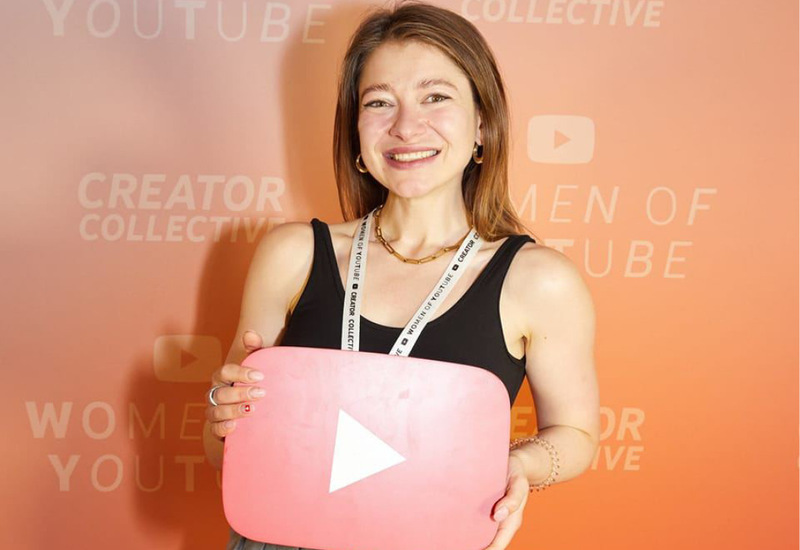
I had never dreamed of living in Britain. It had always seemed to me that people who wanted to move to London had spent too much time on Instagram, looking at pictures of red buses or the streets of Belgravia, which is how they imagined life was like here. I’d never had romantic Illusions about London, or any desire to live here, but all the same, as far as my career was concerned, I got my dream job in London. It wasn't just my dream either; when I left, several hundred CVs were sent by hopeful applicants for my former position. I really wanted that job, so I ignored the minuscule size of the salary, at only £35,000 a year. My brain blocked out the thought that this was very little for London. I had to borrow from my colleagues to pay for the move as I didn't have the money for the deposit on my flat. (The company paid for everything in the end, of course, but only after a delay of about six weeks). In those early days, I was living in debt and also, on the second day after I had moved, all the money was stolen from my Revolut card. It wasn't a large amount, but for me, it was a lot. (Although I did get it back in the end).
When I first arrived, of course, I just felt wowed. I walked around London thinking that I was living in this film set of a city, where everybody wants to live. But I was renting at Stepney Green. When my future husband came to visit me, he was shocked by my living conditions. To top it all, I had to walk home at night through the streets of Whitechapel. Admittedly, nothing bad ever happened to me. So my acquaintance with London started with a small salary in one of the less salubrious immigrant districts of the East End. It wasn't easy but it was fun.
In all, I worked at YouTube for six years and my final position was as Head of Health, Learning & Sustainability Creators for UK & Ireland. At one point, I started to feel bored. The work wasn't the same; cuts and cost-saving measures had started in the tech sector. I was busier, but, in essence, my tasks were more superficial. From the partnership team, where we did fantastic, complex consultancy work, we were moved to the much less cerebral sales team. I realised I didn't want to do this and that, if I continued in this work, then I just wouldn't know how to sell myself on the labour market. I really love content strategy, I know how to nurture organic videos through recommendations and avoid shadow banning. I have done over 800 audits of major channels and this knowledge and my consulting experience are much more valuable on the market than the price for which I was selling it to YouTube. At the same time, I had to leave to develop these skills further. You need to constantly keep on gaining practical experience in this area as there are no courses or books about it.
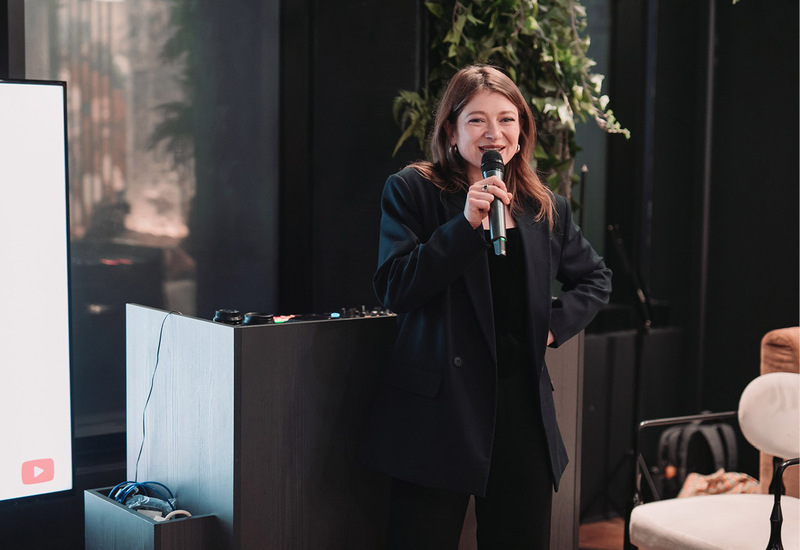
I was also a co-founder of FaceStudio, a project I set up with my mum in 2019 when I was already working at Google. My mother had started a small Instagram blog. At the time, she was 49. She is very sporty and looks fit. Her blog started to grow quickly. She lives in Belarus and back then, she was working at the tax inspectorate. She wasn't allowed to keep a blog and she was browbeaten and even publicly insulted for doing it. We decided that she would continue to develop the blog and for the initial period, I would support her financially as a business director and producer. Now, her main platform is YouTube. My mum helps women of her generation. She tells them about face yoga, the importance of keeping active, massage, healthy eating, sports and so on… in a word, all the things which have been sold to us young people by Instagram but that nobody in particular had been telling women over 50 about. We worked in tandem; Mum was the content creator and I dealt with the business side, investments and marketing. I had to work out how to make a business out of it all. At first, it was really hard and nothing worked out. In 2020, I even suffered a bout of depression and burnout on the back of Covid and difficulties at work. To save our relationship as mother and daughter, at one point we had to go our separate ways. Now, five years after the company was founded, everything’s great. Mum has around 400,000 followers and you can subscribe to do face yoga four times a week on her channel.
I only left Google in the spring to open my own consultancy. For now, it's simply called Nastia Consulting. I had clients straight away, but I’d started with just the bare bones; a name, a web page and my portfolio. I've only just begun working on the presentation. At some point a year or two ago I decided that I wanted to leave my job, so I started to get ready. For a year, I worked on improving areas of my skills and expertise which weren't up to scratch. For the next year, I worked hard making sales pitches to clients, talking with them and selling myself, trying to understand how much demand there was for what I had to offer on the market. This meant I managed to sign up a few clients and start working with them as soon as I had given my notice. I mainly work with individual channels and businesses. I help channels to grow as vehicles for content marketing. I do this in English, Polish and Russian. Most of my Russian-speaking clients themselves live in London.
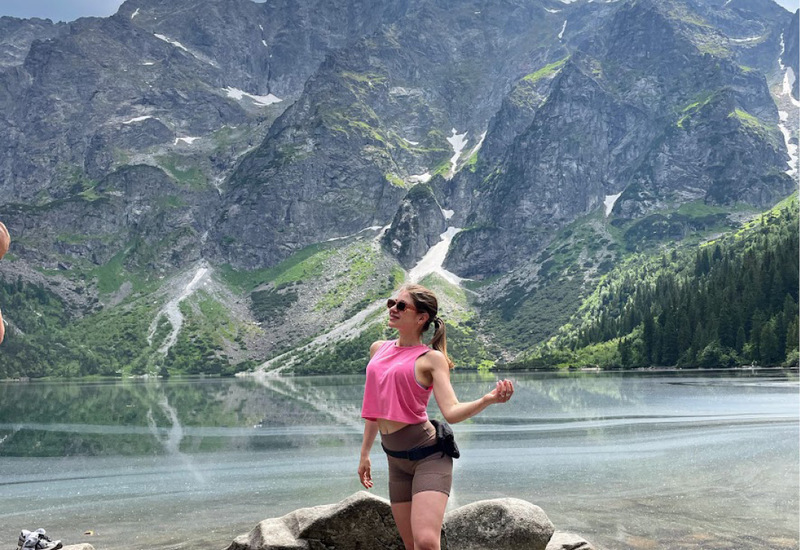
I wanted to do everything my way but it was clear that I would lose the income which I had while I was working with Google. If my husband and I had decided to stay in London, we probably would have had to pay very high rent; several thousand pounds. A mortgage would have set us back anything from £700,000 to about a million. £500,000 to £600,000 is the starting price for anything remotely acceptable. On top of that, the mortgage would have been for several decades, with quite burdensome payments. So, with a mortgage, I wouldn't have been able to leave my job. Of course, this financial decision would have probably meant that I would be tied to my work forever, or I would have had to change one corporation for another, as almost all my London acquaintances do.
You need time and energy to found your own business. It's not something you can just do in the evening or at weekends and I was already using the opportunities those times offered to the full. It was my third business. I had done the previous two in combination with something else. I realised that It would be good to do what they call a runaway; A months-long working stint not motivated by fear or hunger but just because you're enjoying doing that you've chosen to do. Of course, necessity can be the mother of invention. Sometimes people succeed in extremity, but I'm afraid pressure drives me to make the wrong decisions.
I have a friend who deals in property. Not in London, but in Madeira. He said to me; “Before you leave Google, get a mortgage, because that's easy after having received a salary for six years, but if you are self-employed, you won't have that kind of credit history for a long time.” So my husband and I started looking for a home. We ruled out London for two reasons; the price tag, which would have made us corporate slaves and also because of leaseholding. We just don't like this concept, despite all of England seeming to get along just fine with it. Leaseholding presupposes an obligation to pay service charges, a regular expense which it's impossible to get rid of. We cut our budget drastically, having decided on a spending limit of £350,000. This would let us buy a home and have a financial cushion for many months, giving us the chance to sort out our affairs.
Also, in 2022 I moved from London to Gerrards Cross. As I said, in 2020 and 2021 I had several episodes of burnout. I took an unpaid sabbatical to recover and went to Thailand for two months. When I got back I didn't feel like looking for a flat in London, so we decided to look for something out of town, although I didn't know anywhere in England apart from London at that point. Purely by chance, while I was using the computer at work, I noticed that a colleague was renting out a two-bedroom house with a garden in Gerrards Cross for £1,500. We didn't know where that was, but we decided to try it out for six months. In the end, we liked it so much that we stayed there for two years, but when the time came to buy a home, we ruled out both London and Gerrards Cross as all the houses there are over a million.
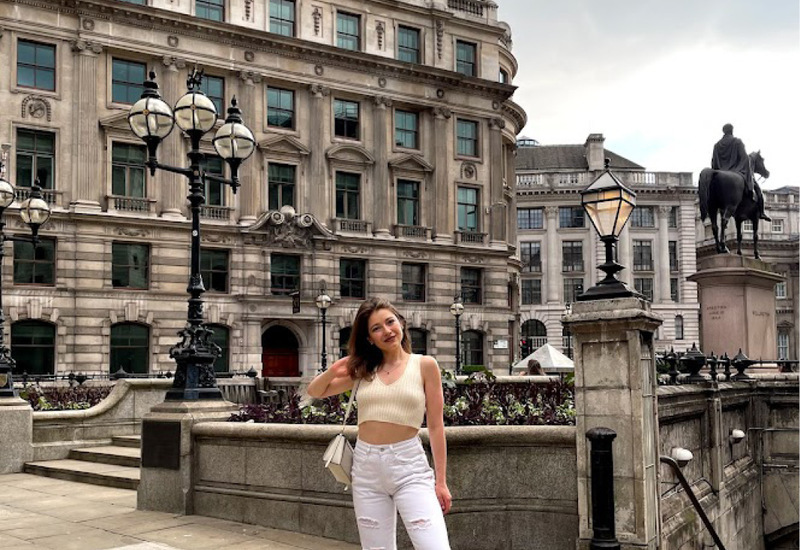
Over the last year, we have looked at 56 properties in Reading, Slough, St Albans, Bedford and Milton Keynes. This last place turned out to have lots of warm, bright, new-build homes fitting our budget. We discovered Milton Keynes is a real gem. Mostly middle-class families with small children live in our neighbourhood. It's true that most of our friends have stayed in London and I can't find the time to escape to have coffee with them. I have to plan all my trips to town in advance and they typically involve an hour and a half’s travel time.
To start my own business I had to cut my costs by roughly 60%. During the first days after the move, while I still had to go to work, I was actually crying on the train whilst I was going there because it was so hard for me to adjust to my new lifestyle. It was difficult to accept that I was doing something that most people wouldn't be ready to do and wasn't considered normal. I knew that I was paying in inconvenience now to have a great deal more comfort in the future. We paid off the mortgage for the house very quickly by making large payments ahead of schedule. This is our safety buffer; if, for some reason, we suddenly have to stop paying now, the bank won't come and complain.
Now I can build up my business in my own time. Luckily, it has brought a profit from the very first month, but all the same, I need a little bit more time to systemise everything. None of our friends have done anything similar and many of them only found out about our little town when they came to our housewarming party. After we had made the move, I learned a lot myself. It turns out that England isn't just London; there's a lot of life in other towns, there's business and networking. It's not the same story as in Belarus, Poland or Russia, where all life revolves around Minsk, Warsaw or Moscow. In England, the locals aren't all striving to make it to London. When I left the capital, I was afraid I'd lose all my clients, but I work with major English bloggers and companies and none of them are based in London. There's life everywhere. That's probably my greatest discovery.
And this August, after six years of living in this country, I’ve applied for British citizenship.






